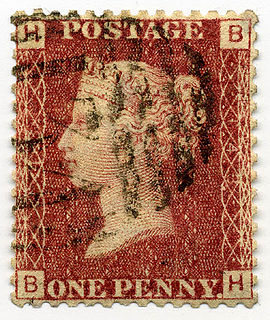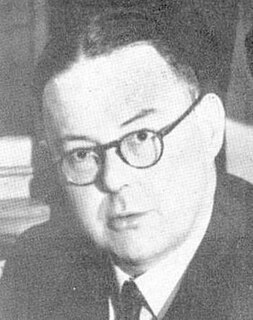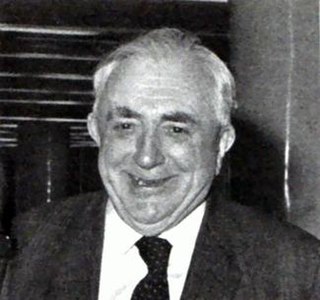Related Research Articles

Philately is the study of postage stamps and postal history. It also refers to the collection, appreciation and research activities on stamps and other philatelic products. Philately involves more than just stamp collecting or the study of postage; it is possible to be a philatelist without owning any stamps. For instance, the stamps being studied may be very rare or reside only in museums.

Stamp collecting is the collecting of postage stamps and related objects. It is an area of philately, which is the study or study and collection of stamps. It has been one of the world's most popular hobbies since the late nineteenth century with the rapid growth of the postal service, as a never-ending stream of new stamps was produced by countries that sought to advertise their distinctiveness through their stamps.

Philatelic literature is written material relating to philately, primarily information about postage stamps and postal history.

Indian postal systems for efficient military and governmental communications had developed long before the arrival of Europeans. When the Portuguese, Dutch, French, Danish and British conquered the Marathas who had already defeated the Mughals, their postal systems existed alongside those of many somewhat independent states. The British East India Company gradually annexed the other powers on the sub-continent and brought into existence a British administrative system over most of modern-day India, with a need to establish and maintain both official and commercial mail systems.

The Royal Philatelic Collection is the postage stamp collection of the British Royal Family. It is the most comprehensive collection of items related to the philately of the United Kingdom and the British Commonwealth, with many unique pieces. Of major items, only the British Guiana 1c magenta is missing from the collection of British Imperial stamps.

John Harry Robson Lowe was an English professional philatelist, stamp dealer and stamp auctioneer.

Edward Benjamin Evans, a British army officer also known as "Major Evans", was a distinguished philatelist, stamp collector, and philatelic journalist. His philatelic specialization included Mauritius, the Confederate States of America, the Mulready envelopes, and the Indian feudatory states.

Sir Edward Denny Bacon, KCVO was a British philatelist who helped with the enlargement and mounting of collections possessed by rich collectors of his time and became the curator of the Royal Philatelic Collection between 1913 and 1938.

The postage stamps and postal history of Israel is a survey of the postage stamps issued by the state of Israel, and its postal history, since independence was proclaimed on May 14, 1948. The first postage stamps were issued two days later on May 16, 1948. Pre-1948 postal history is discussed in postage stamps and postal history of Palestine.

The postal history of Turkey and its predecessor state, the Ottoman Empire, dates to the 18th century when foreign countries maintained courier services through their consular offices in the Empire. Although delayed in the development of its own postal service, in 1863 the Ottoman Empire became the second independent country in Asia to issue adhesive postage stamps, and in 1875, it became a founding member of the General Postal Union, soon to become the Universal Postal Union. The Ottoman Empire became the Republic of Turkey in 1923, and in the following years, its postal service became more modernized and efficient and its postage stamps expertly designed and manufactured.

Walter Morley (1863-1936) was a pioneering English philatelist, stamp dealer and philatelic author.

The Roll of Distinguished Philatelists (RDP) is a philatelic award of international scale, created by the Philatelic Congress of Great Britain in 1921. The Roll consists of five pieces of parchment to which the signatories add their names.
Gary Sidney Ryan (1916–2007) was an eminent philatelist who specialised in the stamps and postal history of Hungary and later in revenue stamps.
David Richard Beech MBE was the curator of the British Library Philatelic Collections from 1983–2013. He is a fellow and past-president of the Royal Philatelic Society London (RPSL). In 2013, it was announced that Beech was to receive the Smithsonian Philatelic Achievement Award for outstanding lifetime accomplishments in the field of philately.

The British Library Philatelic Collections is the national philatelic collection of the United Kingdom with over 8 million items from around the world. It was established in 1891 as part of the British Museum Library, later to become the British Library, with the collection of Thomas Tapling. In addition to bequests and continuing donations, the library received consistent deposits by the Crown Agency and has become a primary research collection for British Empire and international history. The collections contain a wide range of artefacts in addition to postage stamps, from newspaper stamps to a press used to print the first British postage stamps.

The Crown Agents Philatelic and Security Printing Archive was deposited with the British Museum from the 1960s, though the first recorded deposit from the Crown Agents was in 1900. The archive consists of a range of philatelic and written material which were the Crown Agents' working records. It is the most comprehensive record of British Colonial and Commonwealth stamp issues of the last 100 years.

The Crawford Library is a library of early books about philately formed between 1898 and 1913 by James Lindsay, 26th Earl of Crawford. By the time of his death in 1913, Crawford was thought to have amassed the greatest philatelic library of his time. Today, the library is part of the British Library Philatelic Collections.

Henry Robert "Bob" Holmes was the president of the Royal Philatelic Society London 1961-64 and signed the Roll of Distinguished Philatelists in 1953.

Hedwige Alma Lee FRPSL RDP was a Swiss-born naturalised British philatelist who specialised in the stamps of Switzerland and in topical collecting. She won large gold medals for her displays at Naba 1984, Stockholmia 1986, Hafnia 1987 and Finlandia 1988 and her collection was exhibited in the Court of Honour at PhilexFrance 1989 and New Zealand 1990. She signed the Roll of Distinguished Philatelists in 1991 and later became the only non-resident member of the Consilium Philateliae Helveticae. The Royal Philatelic Society London award the Lee Medal in memory of Alma and her husband Ron.
John Barefoot is a British philatelist, stamp dealer, and publisher, best known for his catalogues of revenue stamps which are known collectively as the "Barefoot catalogue".
References
- 1 2 Philatelic Collections: Country collections. Archived 2012-09-22 at WebCite British Library, 2011. Retrieved 25 July 2011.
- 1 2 3 "Libyan revenues collection given to British Library." in The London Philatelist, Vol. 101, No. 1194, June 1992, p. 193.
- ↑ "NEWS ... from near and far." in The London Philatelist Vol. 101, No. 1198, October 1992, p. 273.